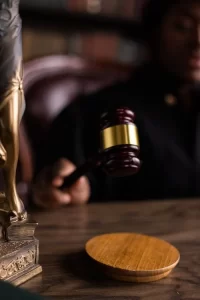
All judges hold an incredible amount of responsibility. Their basic job is to oversee trials, lawsuits and other official court matters. They moderate all court proceedings, and are sometimes even referred to by that term, as in the phrase “May it please the court”. To become a judge at a state run court, the candidate must be a practicing attorney for several years to ensure they have a vast knowledge of the legal system. State court judges can either be appointed or elected by the public into the position. This means they may have to periodically run for re-election. Federal, judges, however, are appointed for life by the president.
The duties of a judge usually begin with a pre-trial in which they listen to all of the precursory details of the case. From there, the judge will determine whether or not they feel the case warrants being tried based on the evidence provided. A case can be dismissed at this point, or move forward. When a case is approved, the judge will notify the defendant that they may either hire their own attorney or have a public defender appointed to them. Bail may then be set for any suspect who is currently in custody by the judge’s discretion. Sometimes, the prosecutor will ask for an increase in the bail amount depending on the the type or severity of the crime or the likelihood that the suspect is a flight risk, and the judge can either allow or deny the request at their discretion.
Judges preside over court hearings both with and without a jury present. Jurors are usually used for criminal cases, and their duty is to listen to all the facts and evidence presented by both the defense and prosecution, and then pronounce the accused as either guilty or innocent. It is up to the judge to determine a proper sentence when a guilty verdict is returned. During civil cases, the plaintiff and defendant may choose to have the judge hear their arguments without a jury, giving the judge full responsibility over the outcome. They will decide which party is at fault in the matter and set any necessary fees or penalties.
One of the most important duties that judges who operate under a common law system must undertake is to interpret and revise the statutes that govern society. They will take any existing rules that are relevant to the case before them into consideration, and make new precedents that will affect the outcome of future cases. In this way, all judges contribute to and help shape the laws of the land.
